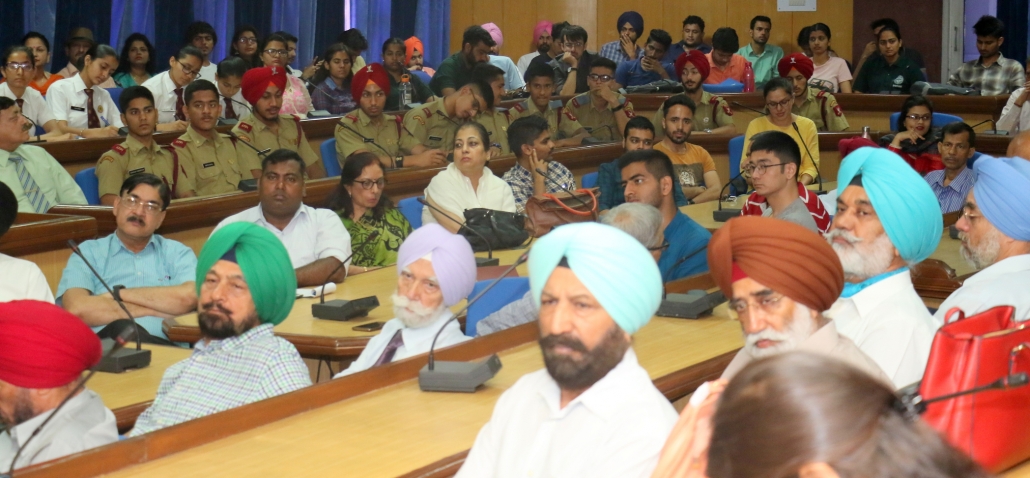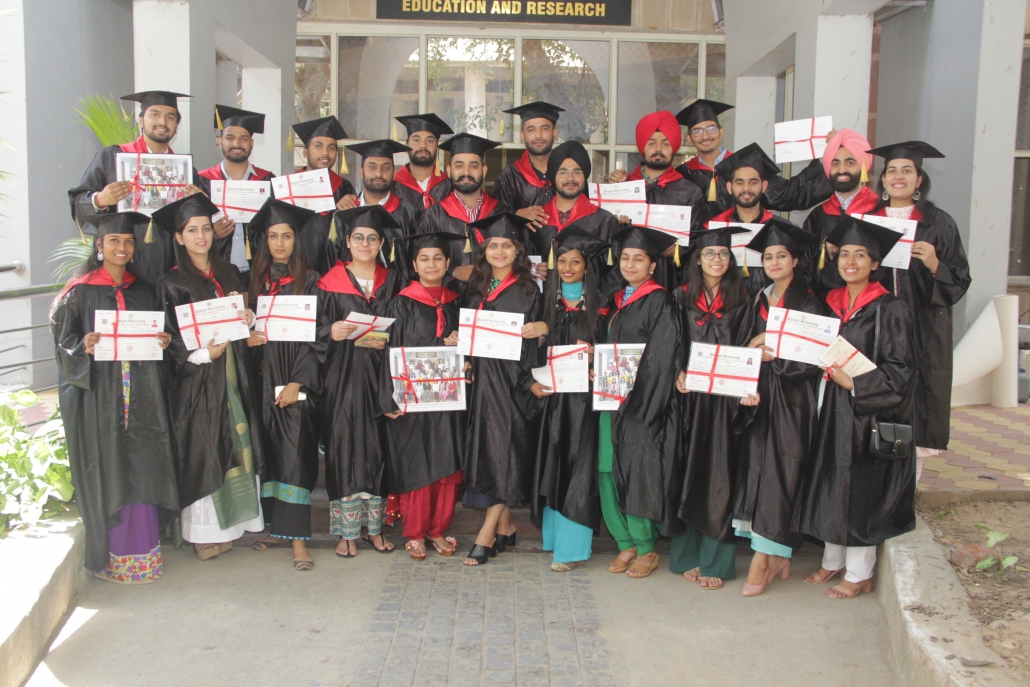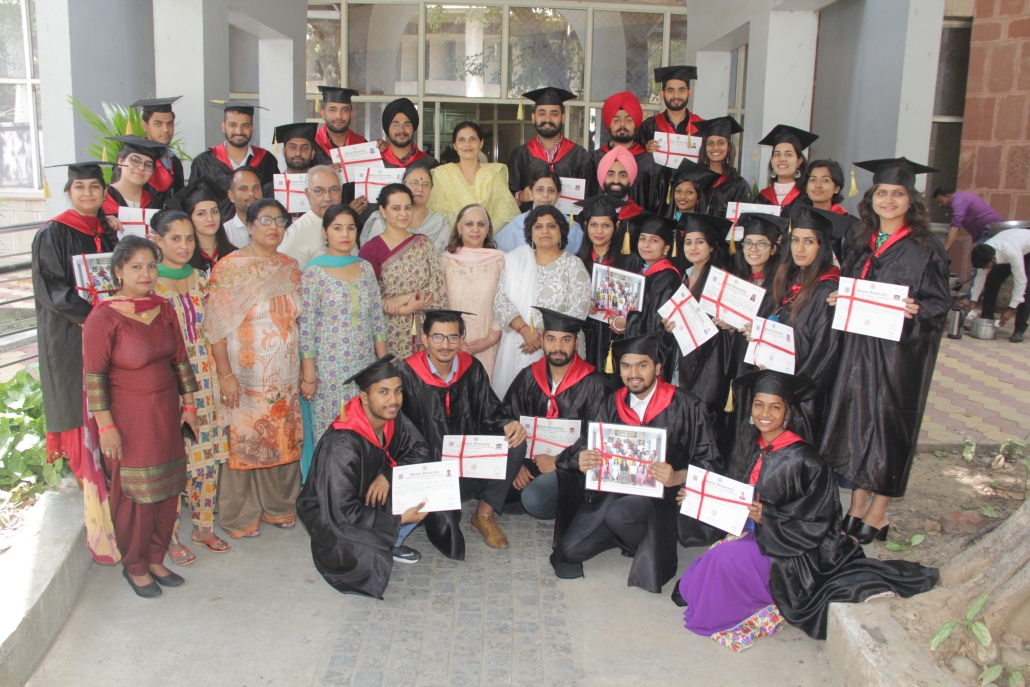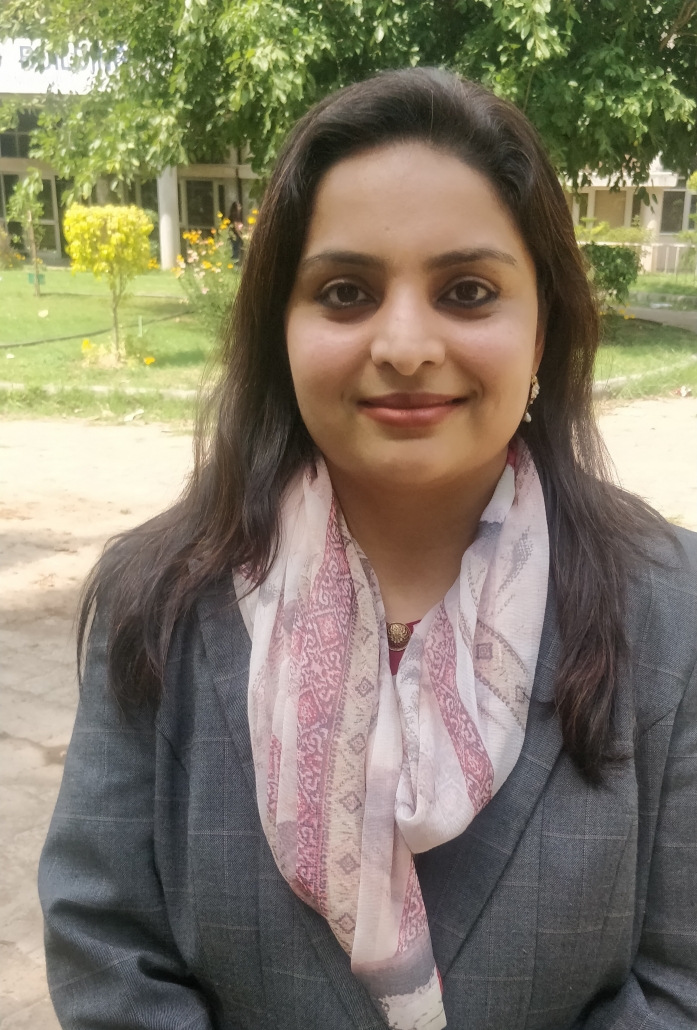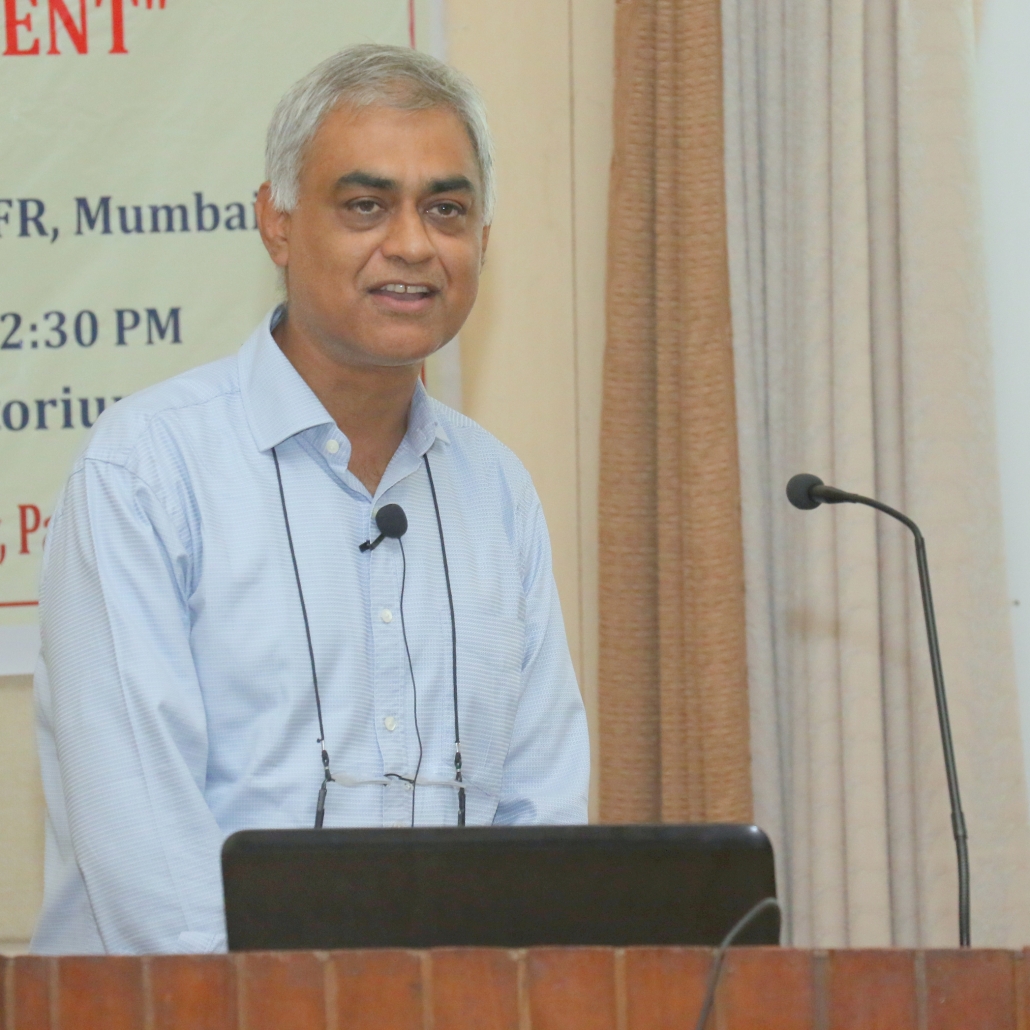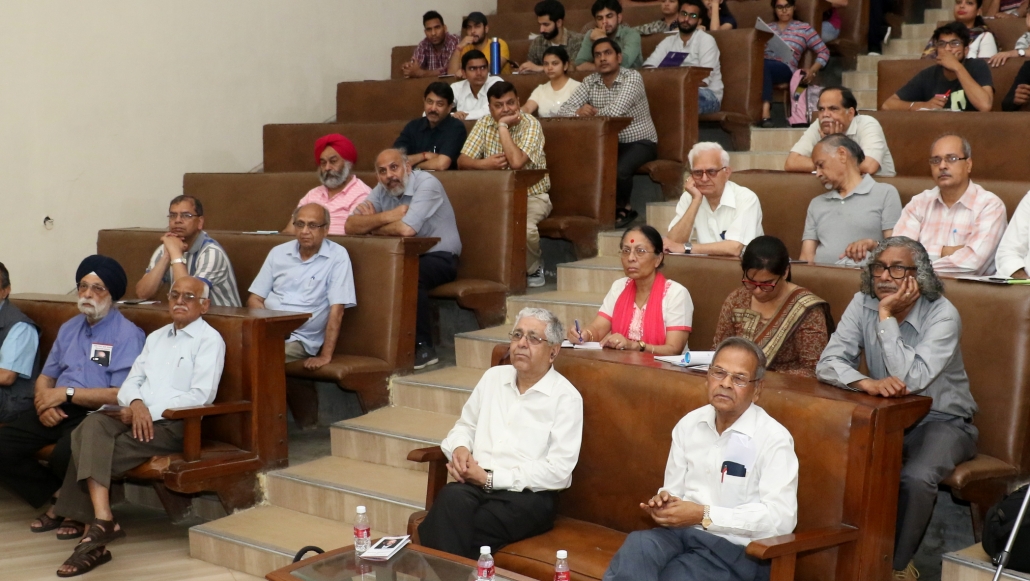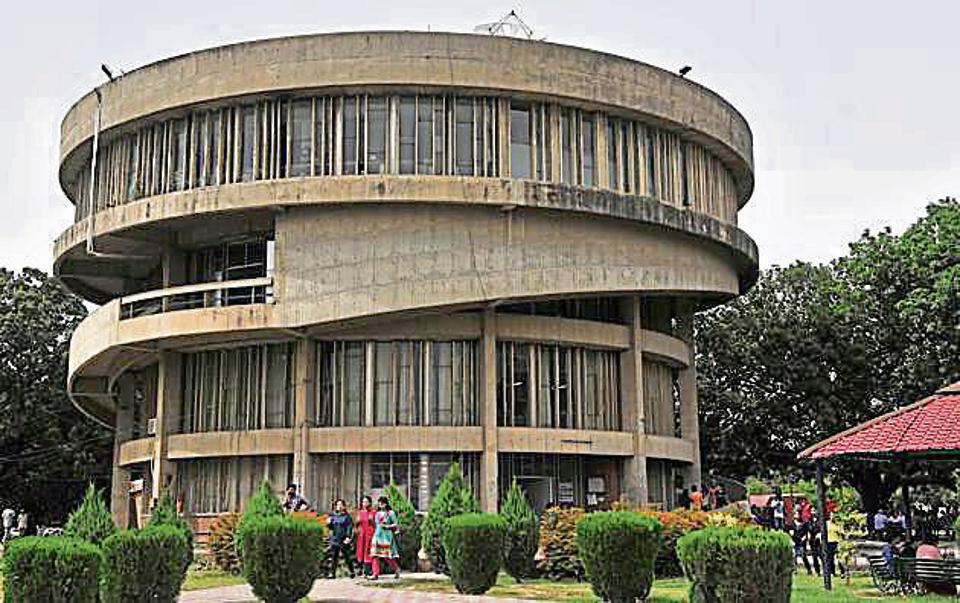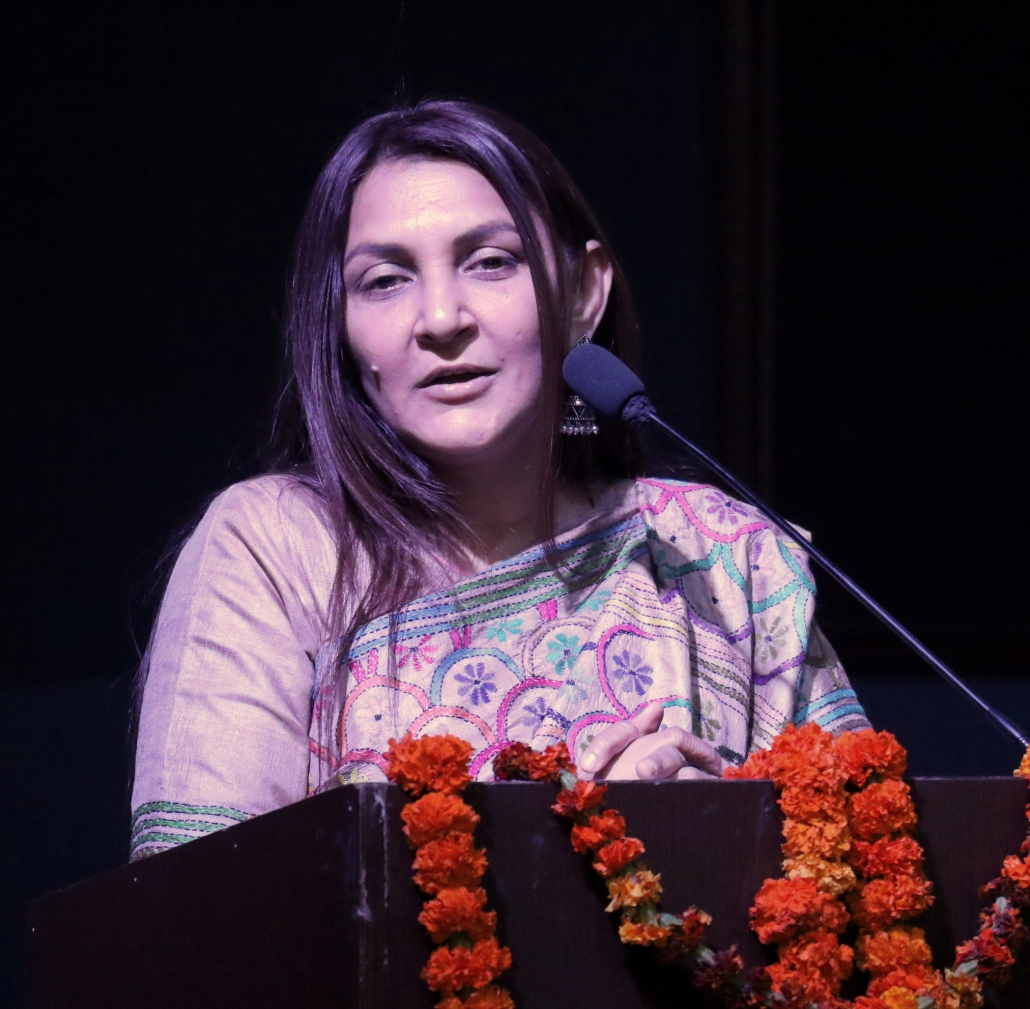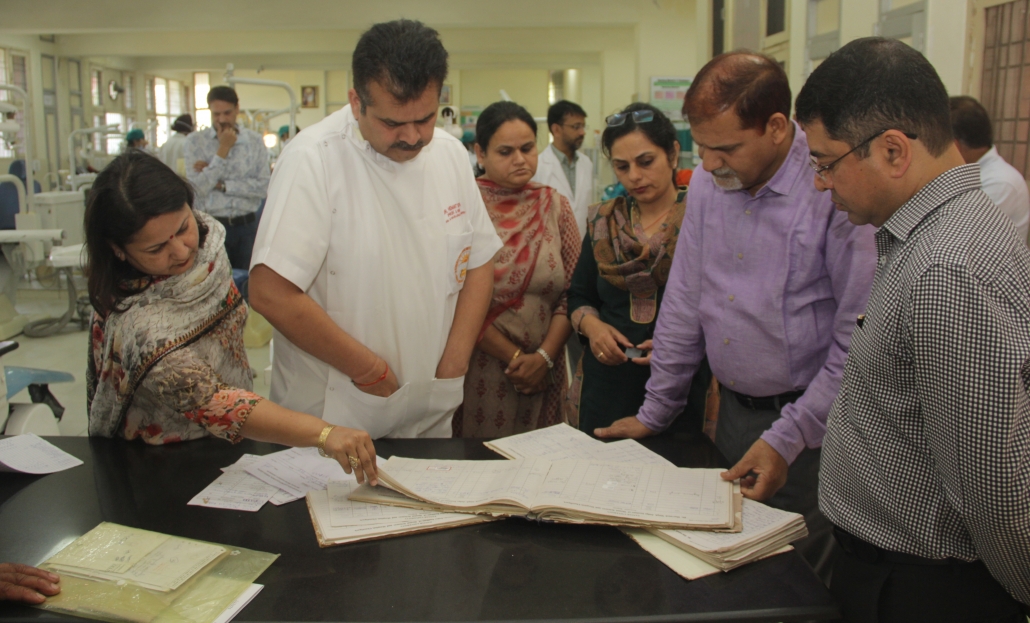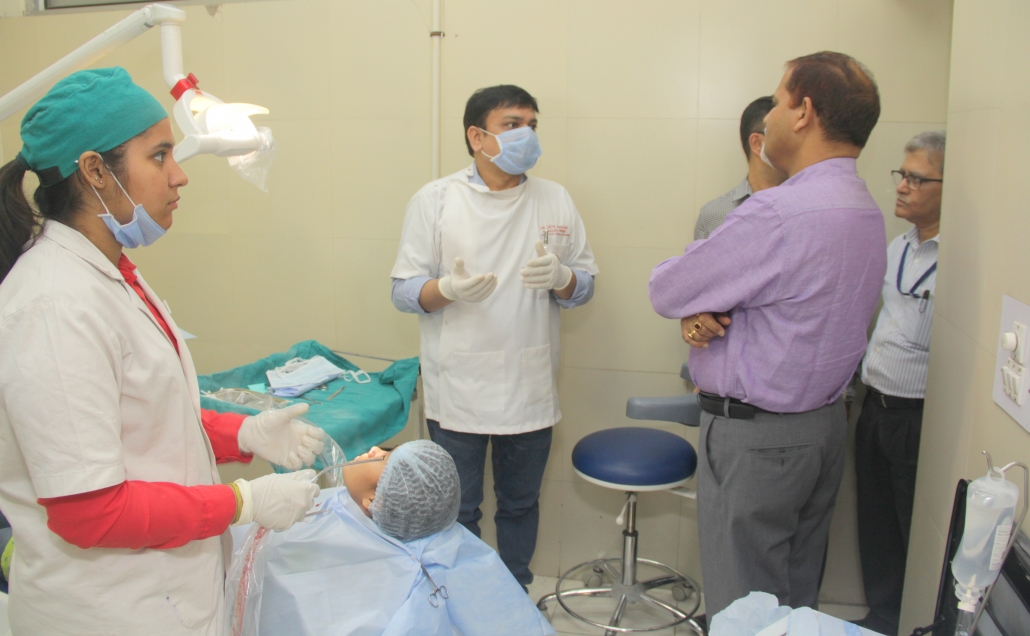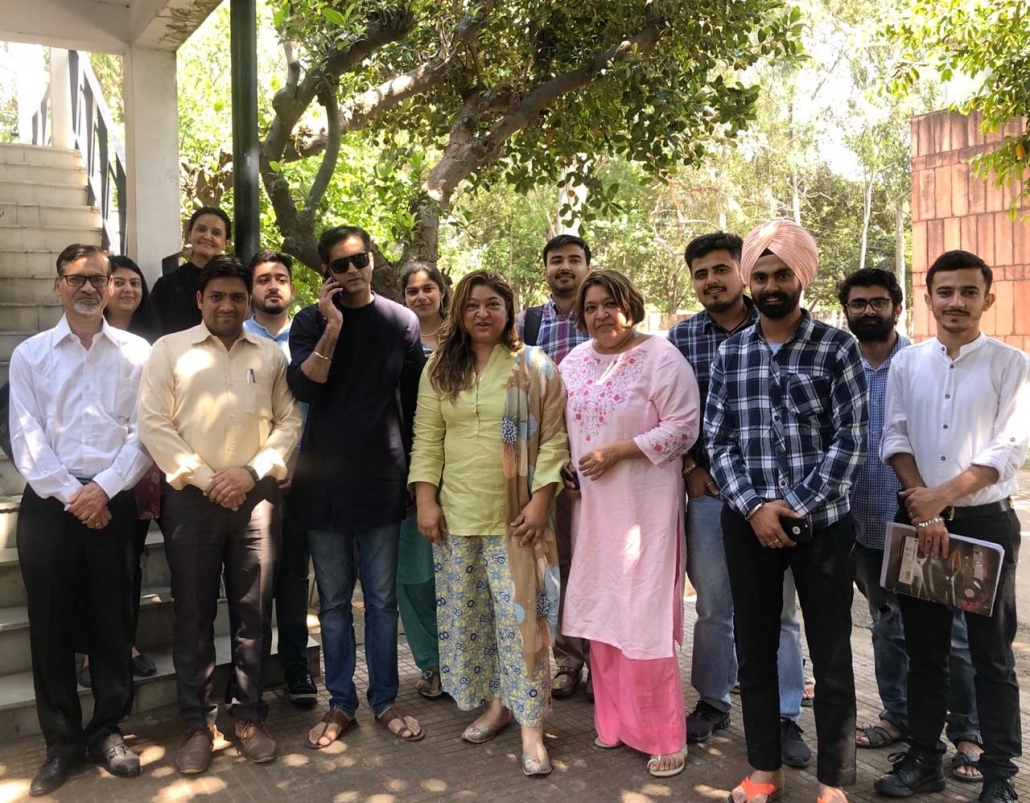Botany Department, Panjab University successfully organized 5th & 6th Professor Shiv
Chandigarh April 24, 2019

Botany Department, Panjab University successfully organized 5th & 6th Professor Shiv Ram Kashyap Oration Award Lectures at 11.00 a.m. on April 24, 2019 at Auditorium of Botany Department. Chairperson of the Botany Department, Prof. (Dr.) Daizy R. Batish gave the welcome address.
Prof (Dr.) Shankarji Jha, Dean University Instructions, Panjab University, Chandigarh was the Chief Guest on the occasion. In his inaugural address, he enlightened the audience about Shiv Ram Kashyap Oration Award Lectures and also congratulated and appreciated the efforts of Botany department for organizing the event. He also said about Prof. Kashyap was conferred Doctorate Degree (honoris causa) during special convocation (December 4-6, 1933) in the golden jubilee celebrations of the University
along with Sir Jagdish Chandra Bose. He was given the title of ‘Rai Sahib’ in 1920 and ‘Rai Bahadur’ in 1929 in recognition of his extraordinary contributions to academic services. Subsequently, the dignitaries were honoured and felicitations were offered.Prof. Promila Pathak, introduced both the awardees Prof. (Dr.) Imran Siddiqi, JC Bose Fellow, CCMB, Hyderabad & Prof. (Dr.) Sudhir K. Sopory, SERB Distinguished Fellow,
ICGEB, Delhi). She introduced the first awardee and mentioned his achievements stating that Prof. (Dr.) Imran Siddiqi, presently working as JC Bose Fellow (DST), CCMB, Hyderbad. He did his Master of Science from Indian Institute of Technology, Bombay and Ph.D. from University of Oregon, USA in 1989. He did his Ph.D. under the guidance of Prof. Franklin Stahl and the topic of his research was “Genetic Recombination in Bacteriophage”. After that, he did his Post-Doctoral Fellowship at Indian Institute of Science, Bangalore. Prof. Imran Siddiqi is a well-known geneticist. His research has shown a lot of promise and progress in the areas of apomixes, meiosis and gametogenesis in plants. Since 1992, he is a Scientist at the Centre for Cellular and Molecular Biology (CCMB) in Hyderabad. He has established his own Siddiqi Lab at CCMB, Hyderabad. He has been a Visiting Professor in the Laboratory of Prof. V. Sunderasan, Institute of Molecular Agrobiology, Singapore as well as in the Laboratory of Prof. Ueli Grossniklaus, Cold Spring Harbor Laboratory, New York. He has a number of publications in highly esteemed journals like Science, Nature, Biotechnology Journal, BMC Molecular Biology and Genome. Prof. Imran has to his credit a number of fellowships and awards such as: Distinguished Alumnus Award of IIT Bombay, INFOSYS Prize in Life Sciences, Fellowship of The Indian National Science Academy, New Delhi and The Indian Academy of Science, Bangalore. Prof. Siddiqi is a member of Editorial Board of The Journal of Biosciences, Genetics and BMC Plant Biology.
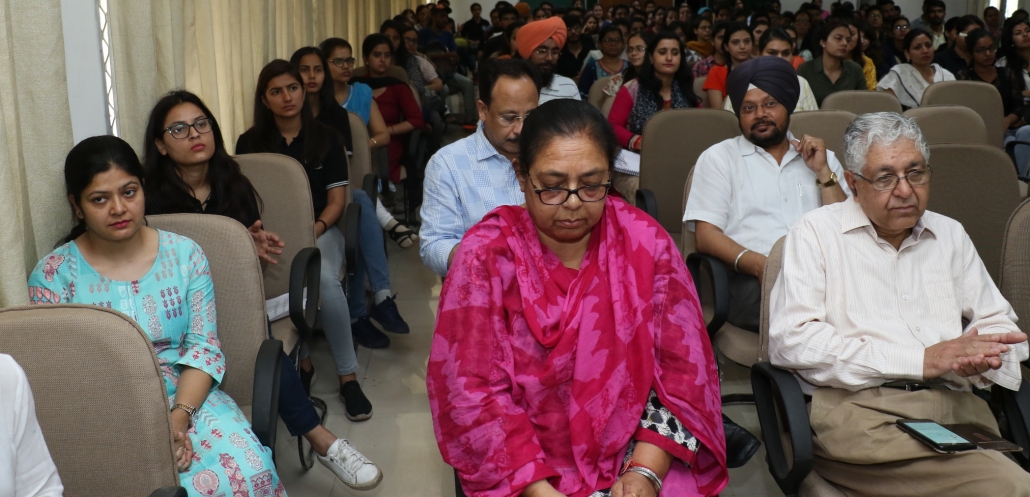
The speaker for the occasion, Prof. (Dr.) Imran Siddiqi delivered his lecture on the topic “21st Century Economics GM Crops in the Indian Context: Will the Past Inform the Future?”.
The next awardee for the 6th Professor Shiv Ram Kashyap Oration Award was Padma Shri Prof. (Dr.) S. K. Sopory who is currently working as SERB Distinguished Fellow of the Dept. of Science and Technology, Govt. of India, at ICGEB, New Delhi . He began his academic career in the year 1973 as a Faculty at the School of Life Sciences, Jawaharlal Nehru University and worked there till 1996. His teaching and research career spans over 45 years inclusive of that as Visiting Scientist at Max-Planck-Institute for Plant Breeding Research, Germany; visiting Fulbright fellow at the Department of Botany, University of Texas, USA and Plant Molecular Biology Lab of the
U.S. Department of Agriculture, USA, and visiting Humboldt Professor at the University of Munich, Germany. He was the first one to work out in detail “the role of glyoxalase pathway in plant stress biology”. His researches have been documented in over 250 articles published in peer reviewed journals. He has been the editor of 13 books and has contributed more than 50 chapters in books. He has been the President of the Indian Society of Plant Physiology and the Vice-President of the National Academy of Sciences, India, Allahabad; Indian Society for Plant Physiology and Biochemistry; Indian National Science Academy, Delhi; and the Society for Plant Biochemistry and Biotechnology, New Delhi and is a former secretary of the Plant Tissue Culture Association of India. Prof. Sopory has been the recipient of many National and International honours for his pioneering contributions to Scientific Research and Teaching, including the 1987 Shanti Swarup Bhatangar Prize by CSIR, the highest Indian award in the Science and Technology categories. Some of the other notable awards include T. N. Khoshoo Memorial Award, B. M. Johri Memorial Award, NASI Prof. R. N. Tandon Memorial Award, and Padma Shri, the fourth highest civilian honour by the Government of India. He is an elected Fellow of several major Indian science academies. He is the first Indian to receive Corresponding Membership Award of American Society for Plant Biology in 2010. He was the Eleventh Vice Chancellor of the Jawaharlal Nehru University from Jan. 2011 to Jan 2016.
The speaker for the occasion, Padma Shri Prof. (Dr.) S. K. Sopory delivered his lecture on the topic “Strategies towards Developing Plant Tolerance under Abiotic Stress”
Prof. (Dr.) Girish Sahni was the chair of the session during the occasion. In his address, he thanked the Guest Speakers, Prof. (Dr.) Imran Siddiqi and Padma Shri Prof. (Dr.) S. K. Sopory for taking out time from their busy schedule to grace the University with their solicit presence and agreeing to enlighten the audience with their vast knowledge and experience.
Prof. Promila Pathak presented a vote of thanks. She thanked DUI, Prof. Shankarji Jha for gracing the occasion as Chief Guest, despite his busy schedule, and Dr. Girish Sahni, for presiding over the session. She on behalf of the department, also expressed deep regards and heartiest thanks to Honourable Vice Chancellor, Panjab University, Prof (Dr.) Raj Kumar for his guidance, support and encouragement. She also appreciated and acknowledged the contributions and opinions shared by eminent Speakers
for today’s gathering Prof. (Dr.) Imran Siddiqi, and Prof. (Dr.) Sudhir K. Sopory for stimulating the environment with their interesting and thought provoking lectures.
[responsivevoice_button voice=”UK English Female” buttontext=”Listen to Post”]




